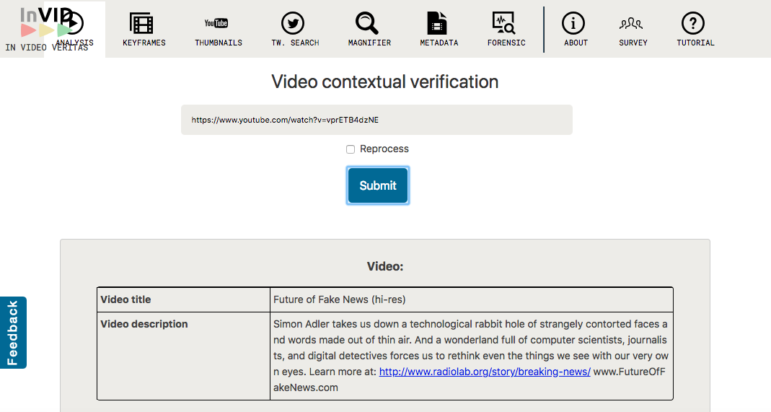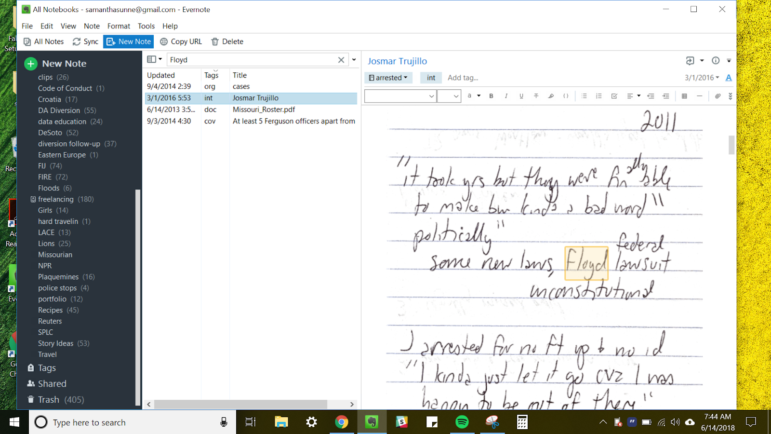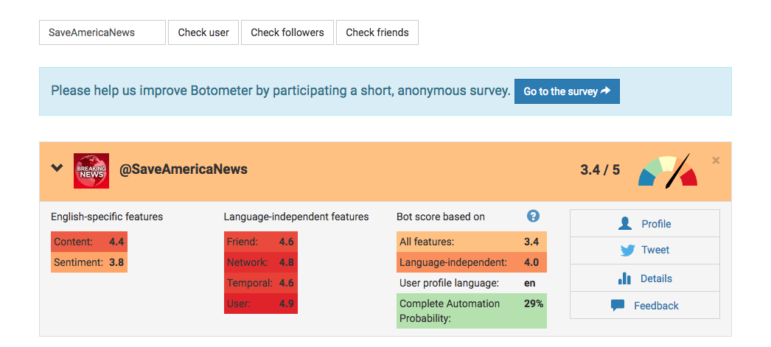العربية | বাংলা | 中文 | Français | Português | Русский | Español
Investigations, the saying goes, are just regular stories with a lot more labor put in. Investigative reporters spend inordinate amounts of time sifting through documents, verifying sources and analyzing data — and that’s if they can even get the data. As an investigative reporter with way too many stories I want to do, these are the tools I use to keep up with sources, stories and leads at a rapid rate.
Let’s take a look at 10 of the best new tools for unearthing, accelerating, and keeping track of investigations:
Hunter.io
Tracking down people’s contact info is a big part of the job and Hunter.io is a nifty resource. It sniffs out email addresses on a certain domain — like a government agency, for instance. Even if it doesn’t turn up the email you’re looking for, Hunter will give you its best guess at the formula they use (“{last name}{first name}@company.com,” for example). Then you can hop over to the Email Verifier to make sure it won’t bounce. I have the Chrome extension installed, which adds a “Find their email” button to LinkedIn profiles.
IntelTechniques
We’ve all done some Facebook stalking in our day — well, okay, I have. IntelTechniques is a one-stop shop for searching through dozens of social media and website platforms. You can use it to background a source, track someone down or even delve into someone’s online life. The Facebook tools, for instance, will show you all the photos a Facebooker has liked, or the videos they’ve been tagged in.
InVID
Vetting images and videos on the web is a craft that’s still developing. Videos are more difficult than static images, in fact. Created by a consortium of journalists and product designers in Europe, the InVID browser extension is one of the most sophisticated tools yet. It will extract thumbnails, frames, metadata and other info that might help you determine a video’s background. Unfortunately, it can only handle YouTube and Facebook videos so far. A desktop app will be released soon.
YouTube DataViewer
Human rights groups are also very interested in making sure user-generated content is legit. The YouTube DataViewer was put together by Amnesty International, and helps to find the provenance of YouTube videos. If you don’t find much of interest on the video itself, you can run the thumbnails it generated through Reverse Image Search. Unfortunately, right now that’s about as far as you can get with verifying video online — except, of course, reporting.
Sqoop
What’s one thing that sets investigators apart from regular reporters? Documents. Sqoop is a U.S.-focused site that offers a way to search court records, business filings and other documents at a national level. You can also use it to follow cases or set alerts for new docs. It’s usually $99/month, but free for journalists.
Evernote
Another thing that sets investigative journos apart? The sheer metric volume of notes, records, interviews and other building blocks to an investigation. Evernote has two features that I think make it one of the most valuable tools for reporters out there. First, its free mobile app offers the best scanner and text-searcher you could ever keep in your pocket. Second, it’s a powerhouse for keeping track of sprawling research. One story I’m working on currently has almost 100 notes, consisting of interviews, news articles, academic studies and more.
Klaxon
This one requires a little more elbow grease to get moving, but it’s worth it. Klaxon is the best tool out there right now for tracking websites and how they change. It was developed by journalists at The Marshall Project, a criminal justice journalism nonprofit in the US, but it works on any website in any language. To set it up, you need to create an account at Heroku and follow the The Marshall Project’s instructions on Github. Once you’ve jumped through those hoops, though, you can set up email and Slack notifications for when a page changes.
Botometer
With all the trolls, critics and actual spies out there, knowing if an online persona is real can save you a lot of headaches — or mistakes. The Botometer, created by university researchers in the US, gauges a Twitter account’s likelihood of being a robot. It’s not guaranteed to be right, but it’s one of the best bot-spotters out there. You can also use it to check a user’s followers, to get an idea of whether they’re mostly followed by bots.
Burner
Privacy and security are on everyone’s minds, and investigative reporters have more reason to worry. No matter how much you encrypt your messages or switch on a VPN, you’re still leaving traces of yourself, often in the metadata. One side route is to create a burner phone line. Burner will give you a “phone number” with an area code in Canada or the US for $5 or less. International calls are not yet available, unfortunately.
Oligrapher
This one is less for reporting and more for the publication and visual side. Oligrapher, as its name might suggest, is designed for graphing oligarchs. lets you make network maps of people and organizations. It’s easiest to make a graph using the groups and entities in LittleSis’s database, which, luckily, contains millions of them around the world. If the person or company you want to include isn’t in their database, you can add it yourself.
What do you use for investigations? For more tools, check out GIJN’s Resource Center and sign up to receive Samantha Sunne’s Tools for Reporters newsletter.
 Samantha Sunne is a freelance reporter in New Orleans, Louisiana, where she writes data and investigative stories. She also teaches digital tools to journalists around the world and publishes a newsletter called Tools for Reporters.
Samantha Sunne is a freelance reporter in New Orleans, Louisiana, where she writes data and investigative stories. She also teaches digital tools to journalists around the world and publishes a newsletter called Tools for Reporters.





I’m not a journalist: I’ve done a tiny bit of research and I can see that the present shocking state the UK is in is at least in part due to Facebook and Cambridge Analytica and that the hold Facebook has over the population can only mean that the current ‘government’ can be assured that whatever the fallout of the next few weeks -whether it be a General Election, Second Referendum or whatever else is decided, the UK is headed for an almost apocalyptic fall into chaos, with only the super rich benefitting. Please tell me that there are some super brilliant journalists out there investigating this and that they have access to a public forum to disseminate their findings.